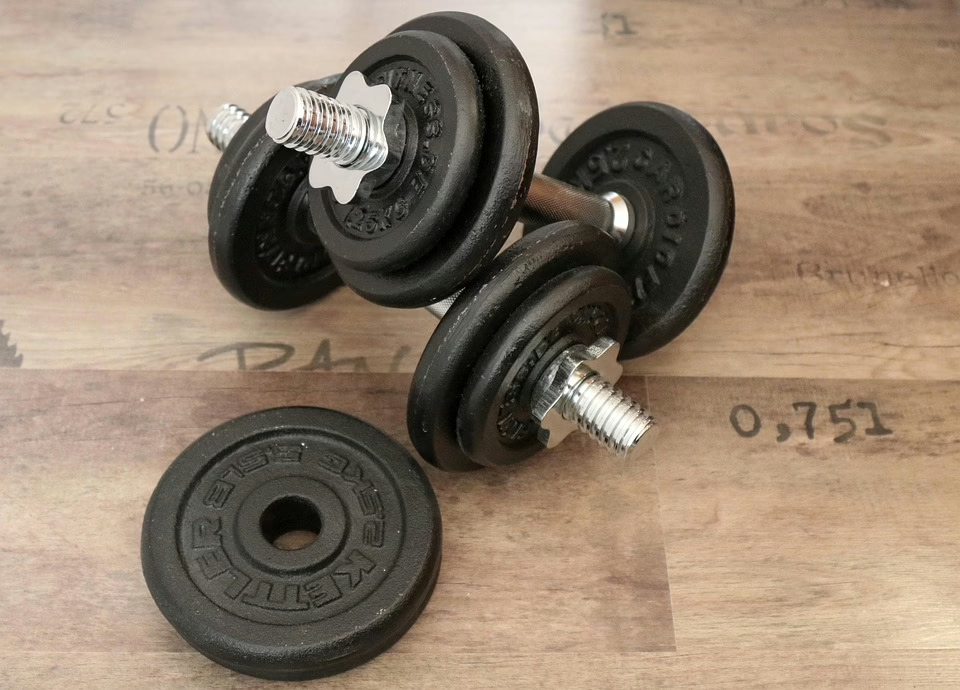Fuel Your Gains: The Ultimate Guide to Bodybuilding Nutrition
Introduction
Bodybuilding, at its core, is a science of transformation. It’s the art and discipline of sculpting the human physique through a meticulously planned and executed program that combines resistance training, recovery, and, perhaps most critically, nutrition. While the gym is where the muscle fibers are broken down, the kitchen is where they are rebuilt, strengthened, and ultimately, transformed. Without a strategic and well-informed approach to nutrition, the countless hours spent lifting weights will yield only a fraction of the potential results. This guide serves as your comprehensive roadmap to mastering bodybuilding nutrition, covering the essential macronutrients, micronutrients, timing strategies, supplementation, and practical application to help you fuel your gains and achieve your physique goals.
The Cornerstone of Bodybuilding: Macronutrients
Macronutrients are the primary building blocks of our diet and provide the energy our bodies need to function. In bodybuilding, understanding and manipulating macronutrient ratios is paramount for optimizing muscle growth, fat loss, and overall performance. The three key macronutrients are protein, carbohydrates, and fats.
1. Protein: The Muscle Builder
Protein is often hailed as the king of macronutrients in the bodybuilding world, and for good reason. It is the fundamental building block of muscle tissue. When you lift weights, you create microscopic tears in your muscle fibers. Protein provides the amino acids necessary to repair these tears, rebuild the fibers stronger and larger, and ultimately, facilitate muscle hypertrophy. [1]
- Amino Acids: Protein is composed of amino acids, which are the fundamental building blocks of all proteins in the body. There are 20 amino acids in total, nine of which are considered essential, meaning the body cannot produce them and they must be obtained through the diet. Complete protein sources contain all nine essential amino acids in adequate amounts.
- Protein Sources:
- Animal Sources: Lean meats (chicken breast, turkey breast, lean beef), fish (salmon, tuna, cod), eggs, dairy products (milk, Greek yogurt, cottage cheese, whey protein). Animal sources are generally complete proteins.
- Plant Sources: Legumes (beans, lentils, chickpeas), tofu, tempeh, quinoa, nuts, seeds, and certain vegetables. Plant-based proteins are often incomplete, requiring careful combination to ensure all essential amino acids are consumed.
- Protein Intake Recommendations: The recommended daily protein intake for bodybuilders is generally higher than the standard recommendations for sedentary individuals. A commonly cited range is 1.6-2.2 grams of protein per kilogram of body weight (0.73-1 gram per pound). [2] However, individual needs can vary based on training intensity, experience level, and overall calorie intake.
- Protein Timing: While total daily protein intake is the most important factor, strategically timing protein consumption can further optimize muscle protein synthesis (MPS). Consuming protein around your workouts (pre and post) can help maximize muscle recovery and growth. A protein-rich meal or shake immediately after training provides the body with the necessary amino acids to begin the repair and rebuilding process. Spreading protein intake throughout the day in smaller, more frequent meals can also help maintain a positive nitrogen balance and promote consistent MPS.
2. Carbohydrates: The Energy Provider
Carbohydrates are the body’s primary source of energy. They are broken down into glucose, which fuels our muscles and brain. In bodybuilding, carbohydrates play a crucial role in fueling workouts, replenishing glycogen stores (the stored form of glucose in muscles and liver), and supporting muscle recovery.
- Types of Carbohydrates:
- Simple Carbohydrates: Found in fruits, honey, and refined grains. They are quickly digested and provide a rapid source of energy. While useful for a pre-workout boost, excessive consumption of simple carbohydrates can lead to rapid blood sugar spikes and subsequent crashes.
- Complex Carbohydrates: Found in whole grains, vegetables, and legumes. They are digested more slowly and provide a sustained release of energy. Complex carbohydrates are the preferred source of carbohydrates for bodybuilders, as they provide a more stable energy source and help maintain stable blood sugar levels.
- Carbohydrate Sources:
- Whole Grains: Brown rice, quinoa, oats, whole wheat bread.
- Vegetables: Broccoli, spinach, sweet potatoes, carrots.
- Fruits: Berries, bananas, apples, oranges.
- Legumes: Beans, lentils, chickpeas.
- Carbohydrate Intake Recommendations: Carbohydrate needs vary depending on training intensity, goals (muscle gain vs. fat loss), and individual metabolic rate. A general guideline is 3-5 grams of carbohydrates per kilogram of body weight (1.4-2.3 grams per pound) for moderately active individuals. During periods of intense training or bulking, this intake may need to be increased. Conversely, during cutting phases, carbohydrate intake may be reduced to promote fat loss.
- Carbohydrate Timing: Like protein, strategically timing carbohydrate intake can optimize performance and recovery. Consuming carbohydrates before a workout provides fuel for your muscles, while consuming carbohydrates after a workout helps replenish glycogen stores and promote muscle recovery. Consuming a small amount of fast-digesting carbohydrates with your post-workout protein shake can also help shuttle amino acids into muscle cells more efficiently.
3. Fats: The Hormone Regulator and Energy Reserve
Fats often get a bad rap, but they are essential for numerous bodily functions, including hormone production, nutrient absorption, and energy storage. In bodybuilding, healthy fats play a crucial role in supporting testosterone production (critical for muscle growth), promoting joint health, and providing a long-lasting source of energy.
- Types of Fats:
- Saturated Fats: Found primarily in animal products and some plant oils (coconut oil, palm oil). While not inherently harmful, excessive consumption of saturated fats can increase LDL cholesterol levels.
- Unsaturated Fats:
- Monounsaturated Fats (MUFAs): Found in olive oil, avocados, and nuts. They are considered heart-healthy and can help improve cholesterol levels.
- Polyunsaturated Fats (PUFAs): Found in fatty fish (salmon, tuna), flaxseeds, chia seeds, and walnuts. They contain essential omega-3 and omega-6 fatty acids, which are crucial for brain function, inflammation regulation, and overall health.
- Trans Fats: Found in processed foods and fried foods. They are considered unhealthy and should be avoided.
- Fat Sources:
- Avocados: Rich in MUFAs, vitamins, and minerals.
- Nuts and Seeds: Almonds, walnuts, flaxseeds, chia seeds.
- Olive Oil: A healthy source of MUFAs for cooking and salad dressings.
- Fatty Fish: Salmon, tuna, mackerel, sardines.
- Coconut Oil: Primarily saturated fat, but can be used in moderation.
- Fat Intake Recommendations: Fat intake should generally make up 20-30% of your total daily calories. A good starting point is 0.8-1 gram of fat per kilogram of body weight (0.36-0.45 grams per pound). Prioritize unsaturated fats, especially omega-3 fatty acids, and limit your intake of saturated and trans fats.
- Fat Timing: Fat intake can be spread throughout the day, but it’s generally recommended to avoid consuming large amounts of fat immediately before or after workouts, as it can slow down digestion and potentially interfere with nutrient absorption.
Micronutrients: The Unsung Heroes
While macronutrients provide the building blocks and energy for muscle growth, micronutrients (vitamins and minerals) play a crucial role in supporting various physiological processes essential for bodybuilding success. They are involved in everything from energy production and muscle function to immune health and hormone regulation. [3]
- Essential Vitamins and Minerals:
- Vitamin D: Crucial for bone health, immune function, and muscle function. Many people are deficient in Vitamin D, especially those who live in northern climates.
- Calcium: Essential for bone health, muscle contraction, and nerve function.
- Magnesium: Involved in hundreds of biochemical reactions in the body, including muscle function, energy production, and nerve function.
- Potassium: Important for maintaining fluid balance, nerve function, and muscle contraction.
- Iron: Essential for oxygen transport in the blood, which is crucial for energy production and muscle function.
- Zinc: Involved in immune function, protein synthesis, and hormone production.
- B Vitamins: (B1, B2, B3, B5, B6, B7, B9, B12) Play a crucial role in energy production, nerve function, and cell growth.
- Vitamin C: A powerful antioxidant that supports immune function and collagen synthesis.
- Vitamin E: Another powerful antioxidant that protects cells from damage.
- Obtaining Micronutrients:
- Diet: The best way to obtain micronutrients is through a diverse and balanced diet rich in fruits, vegetables, whole grains, and lean protein sources.
- Supplementation: In some cases, supplementation may be necessary to address specific deficiencies or to meet the increased demands of intense training. However, it’s always best to consult with a healthcare professional or registered dietitian before starting any new supplement regimen.
- Importance of a Balanced Diet: Focus on consuming a variety of nutrient-dense foods to ensure you are meeting your micronutrient needs. Prioritize whole, unprocessed foods over processed and refined foods. Pay attention to your body’s signals and adjust your diet as needed.
Hydration: The Silent Performance Enhancer
Water is essential for life, and it plays a crucial role in all aspects of athletic performance, including muscle function, energy production, and nutrient transport. Dehydration can significantly impair performance, reduce strength, and increase the risk of injury. [4]
- Benefits of Hydration:
- Muscle Function: Water is essential for muscle contraction and nerve function.
- Energy Production: Water is involved in energy production processes.
- Nutrient Transport: Water helps transport nutrients to cells and waste products away from cells.
- Thermoregulation: Water helps regulate body temperature.
- Hydration Recommendations: The general recommendation is to drink at least 8 glasses of water per day. However, bodybuilders and athletes may need to consume more, especially during intense training. A good guideline is to drink enough water to keep your urine light yellow or clear.
- Electrolyte Balance: During prolonged or intense exercise, you can lose electrolytes (sodium, potassium, magnesium) through sweat. Replenishing these electrolytes is crucial for maintaining fluid balance and preventing muscle cramps. Sports drinks or electrolyte supplements can be used to replenish electrolytes.
Meal Timing: Optimizing Nutrient Delivery
While the total amount of macronutrients consumed is the most important factor, strategically timing your meals can further optimize muscle growth, recovery, and performance.
- Pre-Workout Nutrition:
- Purpose: To provide energy for your workout and prevent muscle breakdown.
- Recommendations: Consume a meal or snack containing carbohydrates and protein 1-2 hours before your workout. Choose easily digestible foods that won’t cause digestive discomfort. Examples include:
- Oatmeal with protein powder and berries
- Chicken breast with brown rice and vegetables
- Protein shake with a banana
- Intra-Workout Nutrition (Optional):
- Purpose: To provide sustained energy during long or intense workouts.
- Recommendations: For workouts lasting longer than 60-90 minutes, consider consuming a carbohydrate-rich sports drink or a small amount of easily digestible carbohydrates, such as gummy bears or dextrose.
- Post-Workout Nutrition:
- Purpose: To replenish glycogen stores, repair muscle tissue, and stimulate muscle growth.
- Recommendations: Consume a meal or shake containing protein and carbohydrates within 30-60 minutes after your workout. Examples include:
- Whey protein shake with a banana or dextrose
- Chicken breast with sweet potatoes
- Casein protein with berries (for overnight recovery)
- General Meal Spacing: Aim to consume meals or snacks every 3-4 hours throughout the day to maintain a positive nitrogen balance and promote consistent muscle protein synthesis.
Supplementation: Filling the Gaps (With Caution)
Supplements can be a valuable tool for bodybuilders, but they should be used strategically and responsibly. Supplements are not a substitute for a healthy diet, and they should only be used to fill gaps in your nutrition or to enhance performance.
- Popular and Effective Supplements:
- Whey Protein: A fast-digesting protein source that is ideal for post-workout recovery.
- Creatine: A naturally occurring compound that helps increase muscle strength and power. [5]
- Branched-Chain Amino Acids (BCAAs): Essential amino acids that can help reduce muscle breakdown and promote muscle recovery.
- Caffeine: A stimulant that can improve energy levels and focus.
- Beta-Alanine: An amino acid that can help buffer lactic acid and improve muscular endurance.
- Multivitamin: Can help ensure you are meeting your micronutrient needs.
- Important Considerations:
- Research: Always research any supplement before taking it to ensure it is safe and effective.
- Quality: Choose high-quality supplements from reputable brands.
- Dosage: Follow the recommended dosage instructions on the label.
- Interactions: Be aware of potential interactions between supplements and medications.
- Consultation: Consult with a healthcare professional or registered dietitian before starting any new supplement regimen.
Bodybuilding Nutrition for Different Goals
Nutritional strategies need to be tailored based on specific goals, whether it’s building muscle mass (bulking), losing body fat (cutting), or maintaining current physique (maintenance).
- Bulking (Muscle Gain):
- Calorie Surplus: Consume more calories than you burn to provide the energy needed for muscle growth. A surplus of 250-500 calories per day is generally recommended.
- Macronutrient Ratios: Prioritize protein intake (1.6-2.2 grams per kg of body weight) and ensure adequate carbohydrate intake to fuel workouts and replenish glycogen stores. Fat intake should remain moderate.
- Focus on Nutrient-Dense Foods: Choose whole, unprocessed foods that are rich in nutrients to support muscle growth and overall health.
- Progressive Overload: Gradually increase the weight you lift and the volume of your workouts to continue stimulating muscle growth.
- Cutting (Fat Loss):
- Calorie Deficit: Consume fewer calories than you burn to force your body to use stored fat for energy. A deficit of 250-500 calories per day is generally recommended.
- Macronutrient Ratios: Maintain a high protein intake (1.8-2.7 grams per kg of body weight) to preserve muscle mass during the calorie deficit. Reduce carbohydrate intake to promote fat loss. Fat intake should remain moderate to support hormone production.
- Cardiovascular Exercise: Incorporate cardiovascular exercise to increase calorie expenditure and promote fat loss.
- Monitor Progress: Track your weight, body fat percentage, and measurements to ensure you are making progress.
- Maintenance:
- Calorie Balance: Consume the same number of calories that you burn to maintain your current weight and body composition.
- Macronutrient Ratios: Adjust macronutrient ratios based on your individual needs and preferences.
- Focus on a Balanced Diet: Continue to consume a diverse and balanced diet rich in whole, unprocessed foods.
- Regular Exercise: Continue to engage in regular resistance training and cardiovascular exercise to maintain your fitness level.
Practical Application: Building Your Bodybuilding Meal Plan
Creating a successful bodybuilding meal plan requires careful planning and attention to detail. Here’s a step-by-step guide to help you build your own personalized meal plan:
- Determine Your Calorie Needs: Use an online calculator or consult with a registered dietitian to estimate your daily calorie needs based on your age, sex, weight, height, activity level, and goals.
- Calculate Your Macronutrient Targets: Based on your calorie needs and goals, calculate your daily protein, carbohydrate, and fat targets using the recommendations outlined earlier in this guide.
- Choose Your Food Sources: Select nutrient-dense foods that you enjoy eating and that fit into your budget and lifestyle.
- Create Your Meal Plan: Divide your daily calorie and macronutrient targets into several meals and snacks spread throughout the day.
- Track Your Progress: Use a food tracking app or journal to monitor your calorie and macronutrient intake and to ensure you are meeting your goals.
- Adjust as Needed: Be prepared to adjust your meal plan based on your progress and how your body responds.
Example Bodybuilding Meal Plan (Bulking, 180 lbs male):
-
Total Calories: 3500
-
Protein: 180 grams
-
Carbohydrates: 450 grams
-
Fats: 78 grams
-
Meal 1 (7:00 AM):
- Oatmeal (1 cup) with protein powder (30g) and berries (1/2 cup)
- Almonds (1/4 cup)
- Protein: 35g, Carbs: 50g, Fats: 15g
-
Meal 2 (10:00 AM):
- Greek Yogurt (1 cup) with banana (1 medium)
- Protein: 20g, Carbs: 35g, Fats: 0g
-
Meal 3 (1:00 PM):
- Chicken Breast (6 oz) with Brown Rice (1 cup) and Broccoli (1 cup)
- Protein: 50g, Carbs: 60g, Fats: 5g
-
Meal 4 (4:00 PM – Pre-Workout):
- Sweet Potato (1 medium) with Ground Turkey (4 oz)
- Protein: 30g, Carbs: 50g, Fats: 5g
-
Meal 5 (7:00 PM – Post-Workout):
- Whey Protein Shake (30g) with Dextrose (50g)
- Protein: 30g, Carbs: 50g, Fats: 0g
-
Meal 6 (9:00 PM):
- Casein Protein (30g) with Avocado (1/4)
- Protein: 35g, Carbs: 5g, Fats: 53g
Common Mistakes to Avoid
- Not Eating Enough Protein: Protein is essential for muscle growth and repair.
- Neglecting Carbohydrates: Carbohydrates are essential for energy and recovery.
- Fearing Fats: Healthy fats are essential for hormone production and overall health.
- Not Drinking Enough Water: Dehydration can impair performance and recovery.
- Relying Too Heavily on Supplements: Supplements are not a substitute for a healthy diet.
- Not Tracking Progress: Tracking your progress is essential for making adjustments to your diet and training.
- Being Impatient: Building muscle and losing fat takes time and consistency.
Conclusion
Bodybuilding nutrition is a complex and multifaceted topic, but by understanding the principles outlined in this guide, you can create a personalized nutrition plan that will help you fuel your gains and achieve your physique goals. Remember to prioritize a balanced diet, strategically time your meals, and use supplements responsibly. Consistency, patience, and a willingness to learn and adapt are key to long-term success. So, take the knowledge you’ve gained, apply it to your own journey, and watch as you transform your body and unlock your full potential. Good luck, and happy lifting!
References
[1] Phillips, S. M. (2011). The science of muscle hypertrophy: making dietary protein count. Proceedings of the Nutrition Society, 70(1), 100-103. [2] Campbell, B., et al. (2007). International Society of Sports Nutrition position stand: protein and exercise. Journal of the International Society of Sports Nutrition, 4(1), 8. [3] Huang, S. H., Tarnopolsky, M. A., & Safdar, A. (2012). Macronutrient and micronutrient needs for strength/power athletes. Journal of Strength and Conditioning Research, 26 Suppl 2(Suppl 2), S73-S84. [4] Sawka, M. N., Burke, L. M., Eichner, E. R., Maughan, R. J., Montain, S. J., & Stachenfeld, N. S. (2007). American College of Sports Medicine position stand. Exercise and fluid replacement. Medicine and Science in Sports and Exercise, 39(2), 377-390. [5] Buford, T. W., Kreider, R. B., Stout, J. R., Greenwood, M., Campbell, B., Spano, M., … & Antonio, J. (2007). International Society of Sports Nutrition position stand: creatine supplementation and exercise. Journal of the International Society of Sports Nutrition, 4(1), 6.

























Add Comment